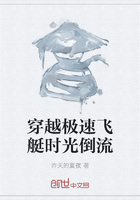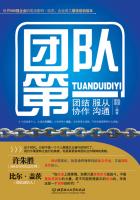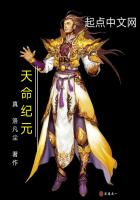Ours is essentially a tragic age, so we refuse to take it tragically. The cataclysm has happened, we are among the ruins, we start to build up new little habitats, to have new little hopes.It is rather hard work:there is now no smooth road into the future:but we go round, or scramble over the obstacles.We've got to live, no matter how many skies have fallen.
This was more or less Constance Chatterley's position. The war had brought the roof down over her head.And she had realized that one must live and learn.
She married Clifford Chatterley in 1917, when he was home for a month on leave. They had a month's honeymoon.Then he went back to Flanders:to be shipped over to England again six months later, more or less in bits.Constance, his wife, was then twenty-three years old, and he was twenty-nine.
His hold on life was marvelous. He didn't die, and the bits seemed to grow together again.For two years he remained in the doctor's hands.Then he was pronounced a cure, and could return to life again, with the lower half of his body, from the hips down, paralyzed for ever.
This was in 1920. They returned, Clifford and Constance, to his home, Wragby Hall, the family'seat'.His father had died, Clifford was now a baronet, Sir Clifford, and Constance was Lady Chatterley.They came to start housekeeping and married life in the rather forlorn home of the Chatterleys on a rather inadequate income.Clifford had a sister, but she had departed.Otherwise there were no near relatives.The elder brother was dead in the war.Crippled for ever, knowing he could never have any children, Clifford came home to the smoky Midlands to keep the Chatterley name alive while he could.
He was not really downcast. He could wheel himself about in a wheeled chair, and he had a bath-chair with a small motor attachment, so he could drive himself slowly round the garden and into the line melancholy park, of which he was really so proud, though he pretended to be flippant about it.
Having suffered so much, the capacity for suffering had to some extent left him. He remained strange and bright and cheerful, almost, one might say, chirpy, with his ruddy, healthy-looking face, and his pale-blue, challenging bright eyes.His shoulders were broad and strong, his hands were very strong.He was expensively dressed, and wore handsome neckties from Bond Street.Yet still in his face one saw the watchful look, the slight vacancy of a cripple.
He had so very nearly lost his life, that what remained was wonderfully precious to him. It was obvious in the anxious brightness of his eyes, how proud he was, after the great shock, of being alive.But he had been so much hurt that something inside him had perished, some of his feelings had gone.There was a blank of insentience.
Constance, his wife, was a ruddy, country-looking girl with soft brown hair and sturdy body, and slow movements, full of unusual energy. She had big, wondering eyes, and a soft mild voice, and seemed just to have come from her native village.It was not so at all.Her father was the once well-known R.A., old Sir Malcolm Reid.Her mother had been one of the cultivated Fabians in the palmy, rather pre-Raphaelite days.Between artists and cultured socialists, Constance and her sister Hilda had had what might be called an aesthetically unconventional upbringing.They had been taken to Paris and Florence and Rome to breathe in art, and they had been taken also in the other direction, to the Hague and Berlin, to great Socialist conventions, where the speakers spoke in every civilized tongue, and no one was abashed.
The two girls, therefore, were from an early age not the least daunted by either art or ideal politics. It was their natural atmosphere.They were at once cosmopolitan and provincial, with the cosmopolitan provincialism of art that goes with pure social ideals.
They had been sent to Dresden at the age of fifteen, for music among other things. And they had had a good time there.They lived freely among the students, they argued with the men over philosophical, sociological and artistic matters, they were just as good as the men themselves:only better, since they were women.And they tramped off to the forests with sturdy youths bearing guitars, twang-twang!They sang the Wandervogel songs, and they were free.Free!That was the great word.Out in the open world, out in the forests of the morning, with lusty and splendid-throated young fellows, free to do as they liked, and—above all—to say what they liked.It was the talk that mattered supremely:the impassioned interchange of talk.Love was only a minor accompaniment.
Both Hilda and Constance had had their tentative love-affairs by the time they were eighteen. The young men with whom they talked so passionately and sang so lustily and camped under the trees in such freedom wanted, of course, the love connexion.The girls were doubtful, but then the thing was so much talked about, it was supposed to be so important.And the men were so humble and craving.Why couldn't a girl be queenly, and give the gift of herself?
So they had given the gift of themselves, each to the youth with whom she had the most subtle and intimate arguments. The arguments, the discussions were the great thing:the love-making and connexion were only a sort of primitive reversion and a bit of an anti-climax.One was less in love with the boy afterwards, and a little inclined to hate him, as if he had trespassed on one's privacy and inner freedom.For, of course, being a girl, one's whole dignity and meaning in life consisted in the achievement of an absolute, a perfect, a pure and noble freedom.What else did a girl's life mean?To shake off the old and sordid connexions and subjections.
And however one might sentimentalize it, this sex business was one of the most ancient, sordid connexions and subjections. Poets who glorified it were mostly men.Women had always known there was something better, something higher.And now they knew it more definitely than ever.The beautiful pure freedom of a woman was infinitely more wonderful than any sexual love.The only unfortunate thing was that men lagged so far behind women in the matter.They insisted on the sex thing like dogs.
And a woman had to yield. A man was like a child with his appetites.A woman had to yield him what he wanted, or like a child he would probably turn nasty and flounce away and spoil what was a very pleasant connexion.But a woman could yield to a man without yielding her inner, free self.That the poets and talkers about sex did not seem to have taken sufficiently into account.A woman could take a man without really giving herself away.Certainly she could take him without giving herself into his power.Rather she could use this sex thing to have power over him.For she only had to hold herself back insexual intercourse, and let him finish and expend himself without herself coming to the crisis:and then she could prolong the connexion and achieve her orgasm and her crisis while he was merely her tool.
Both sisters had had their love experience by the time the war came, and they were hurried home. Neither was ever in love with a young man unless he and she were verbally very near:that is unless they were profoundly interested, talking to one another.The amazing, the profound, the unbelievable thrill there was in passionately talking to some really clever young man by the hour, resuming day after day for months…this they had never realized till it happened!The paradisal promise:Thou shalt have men to talk to!—had never been uttered.It was fulfilled before they knew what a promise it was.
And if after the roused intimacy of these vivid and soul-enlightened discussions the sex thing became more or less inevitable, then let it. It marked the end of a chapter.It had a thrill of its own too:a queer vibrating thrill inside the body, a final spasm of self-assertion, like the last word, exciting, and very like the row of asterisks that can be put to show the end of a paragraph, and a break in the theme.
When the girls came home for the summer holidays of 1913, when Hilda was twenty and Connie eighteen, their father could see plainly that they had had the love experience.
L'amour avait passépar là, as somebody puts it.But he was a man of experience himself, and let life take its course.As for the mot a nervous invalid in the last few months of her life, she wanted her girls to be'free', and to'fulfil themselves’.She herself had never been able to be altogether herself:it had been denied her.Heaven knows why, for she was a woman who had her own income and her own way.She blamed her husband.But as a matter of fact, it was some old impression of authority on her own mind or soul that she could not get rid of.It had nothing to do with Sir Malcolm, who left his nervously hostile, high-spirited wife to rule her own roost, while he went his own way.
So the girls were'free', and went back to Dresden, and their music, and the university and the young men. They loved their respective young men, and their respective young men loved them with all the passion of mental attraction.All the wonderful things the young men thought and expressed and wrote, theythought and expressed and wrote for the young women.Connie's young man was musical, Hilda's was technical.But they simply lived for their young women.In their minds and their mental excitements, that is.Somewhere else they were a little rebuffed, though they did not know it.
It was obvious in them too that love had gone through them:that is, the physical experience. It is curious what a subtle but unmistakable transmutation it makes, both in the body of men and women:the woman more blooming, more subtly rounded, her young angularities softened, and her expression either anxious or triumphant:the man much quieter, more inward, the very shapes of his shoulders and his buttocks less assertive, more hesitant.
In the actual sex-thrill within the body, the sisters nearly succumbed to the strange male power. But quickly they recovered themselves, took the sex-thrill as a sensation, and remained free.Whereas the men, in gratitude to the woman for the sex experience, let their souls go out to her.And afterwards looked rather as if they had lost a shilling and found sixpence.Connie's man could be a bit sulky, and Hilda's a bit jeering.But that is how men are!Ungrateful and never satisfied.When you don't have them they hate you because you won't; and when you do have them they hate you again, for some other reason.Or for no reason at all, except that they are discontented children, and can't be satisfied whatever they get, let a woman do what she may.
However, came the war, Hilda and Connie were rushed home again after having been home already in May, to their mother's funeral. Before Christmas of 1914 both their German young men were dead:whereupon the sisters wept, and loved the young men passionately, but underneath forgot them.They didn't exist any more.
Both sisters lived in their father's, really their mother's, Kensington house, mixed with the young Cambridge group, the group that stood for'freedom'and flannel trousers, and flannel shirts open at the neck, and a well-bred sort of emotional anarchy, and a whispering, murmuring sort of voice, and an ultra-sensitive sort of manner. Hilda, however, suddenly married a man ten years older than herself, an elder member of the same Cambridge group, a man with a fair amount of money, and a comfortable family job in the government:he also wrote philosophical essays.She lived with him in a smallish house inWestminster, and moved in that good sort of society of people in the government who are not tip-toppers, but who are, or would be, the real intelligent power in the nation:people who know what they're talking about, or talk as if they did.
Connie did a mild form of war-work, and consorted with the flannel-trousers Cambridge intransigents, who gently mocked at everything, so far. Her'friend'was a Clifford Chatterley, a young man of twenty-two, who had hurried home from Bonn, where he was studying the technicalities of coal-mining.He had previously spent two years at Cambridge.Now he had become a first lieutenant in a smart regiment, so he could mock at everything more becomingly in uniform.
Clifford Chatterley was more upper-class than Connie. Connie was well-to-do intelligentsia, but he was aristocracy.Not the big sort, but still it.His father was a baronet, and his mother had been a viscount's daughter.
But Clifford, while he was better bred than Connie, and more 'society', was in his own way more provincial and more timid. He was at his ease in the narrow 'great world', that is, landed aristocracy society, but he was shy and nervous of all that other big world which consists of the vast hordes of the middle and lower classes, and foreigners.If the truth must be told, he was just a little bit frightened of middle-and lower-class humanity, and of foreigners not of his own class.He was, in some paralysing way, conscious of his own defencelessness, though he had all the defence of privilege.Which is curious, but a phenomenon of our day.
Therefore the peculiar soft assurance of a girl like Constance Reid fascinated him. She was so much more mistress of herself in that outer world of chaos than he was master of himself.
Nevertheless he too was a rebel:rebelling even against his class. Or perhaps rebel is too strong a word; far too strong.He was only caught in the general, popular recoil of the young against convention and against any sort of real authority.Fathers were ridiculous:his own obstinate one supremely so.And governments were ridiculous:our own wait-and-see sort especially so.And armies were ridiculous, and old buffers of generals altogether, the red-faced Kitchener supremely.Even the war was ridiculous, though it did killrather a lot of people.
In fact everything was a little ridiculous, or very ridiculous:certainly everything connected with authority, whether it were in the army or the government or the universities, was ridiculous to a degree. And as far as the governing class made any pretensions to govern, they were ridiculous too.Sir Geoffrey, Clifford's father, was intensely ridiculous, chopping down his trees, and weeding men out of his colliery to shove them into the war; and himself being so safe and patriotic; but, also, spending more money on his country than he'd got.
When Miss Chatterley—Emma—came down to London from the Midlands to do some nursing work, she was very witty in a quiet way about Sir Geoffrey and his determined patriotism. Herbert, the elder brother and heir, laughed outright, though it was his trees that were falling for trench props.But Clifford only smiled a little uneasily.Everything was ridiculous, quite true.But when it came too close and oneself became ridiculous too…?At least people of a different class, like Connie, were earnest about something.They believed in something.
They were rather earnest about the Tommies, and the threat of conion, and the shortage of sugar and toffee for the children. In all these things, of course, the authorities were ridiculously at fault.But Clifford could not take it to heart.To him the authorities were ridiculous ab ovo, not because of toffee or Tommies.
And the authorities felt ridiculous, and behaved in a rather ridiculous fashion, and it was all a mad hatter's tea-party for a while. Till things developed over there, and Lloyd George came to save the situation over here.And this surpassed even ridicule, the flippant young laughed no more.
In 1916 Herbert Chatterley was killed, so Clifford became heir. He was terrified even of this.His importance as son of Sir Geoffrey, and child of Wragby, was so ingrained in him, he could never escape it.And yet he knew that this too, in the eyes of the vast seething world, was ridiculous.Now he was heir and responsible for Wragby.Was that not terrible?and also splendid and at the same time, perhaps, purely absurd?
Sir Geoffrey would have none of the absurdity. He was pale and tense, withdrawn into himself, and obstinately determined to save his country and his own position, let it be Lloyd George or who it might.So cut off he was, so divorced from the England that was really England, so utterly incapable, that he even thought well of Horatio Bottomley.Sir Geoffrey stood for England and Lloyd George as his forebears had stood for England and St George:and he never knew there was a difference.So Sir Geoffrey felled timber and stood for Lloyd George and England, England and Lloyd George.
And he wanted Clifford to marry and produce an heir. Clifford felt his father was a hopeless anachronism.But wherein was he himself any further ahead, except in a wincing sense of the ridiculousness of everything, and the paramount ridiculousness of his own position?For willy-nilly he took his baronetcy and Wragby with the last seriousness.
The gay excitement had gone out of the war…dead. Too much death and horror.A man needed support and comfort.A man needed to have an anchor in the safe world.A man needed a wife.
The Chatterleys, two brothers and a sister, had lived curiously isolated, shut in with one another at Wragby, in spite of all their connexions. A sense of isolation intensified the family tie, a sense of the weakness of their position, a sense of defencelessness, in spite of, or because of, the title and the land.They were cut off from those industrial Midlands in which they passed their lives.And they were cut off from their own class by the brooding, obstinate, shut-up nature of Sir Geoffrey, their father, whom they ridiculed, but whom they were so sensitive about.
The three had said they would all live together always. But now Herbert was dead, and Sir Geoffrey wanted Clifford to marry.Sir Geoffrey barely mentioned it:he spoke very little.But his silent, brooding insistence that it should be so was hard for Clifford to bear up against.
But Emma said No!She was ten years older than Clifford, and she felt his marrying would be a desertion and a betrayal of what the young ones of the family had stood for.
Clifford married Connie, nevertheless, and had his month's honeymoon with her. It was the terrible year 1917, and they were intimate as two people who stand together on a sinking ship.He had been virgin when he married:and the sex part did not mean much to him.They were so close, he and she, apart from that.And Connie exulted a little in this intimacy which was beyond sex, and beyond a man's 'satisfaction'.Clifford anyhow was not just keen on his 'satisfaction', as so many men seemed to be.No, the intimacy was deeper, more personal than that.And sex was merely an accident, or an adjunct, one of the curious obsolete, organic processes which persisted in its own clumsiness, but was not really necessary.Though Connie did want children:if only to fortify her against her sister-in-law Emma.
But early in 1918 Clifford was shipped home smashed, and there was no child. And Sir Geoffrey died of chagrin.















